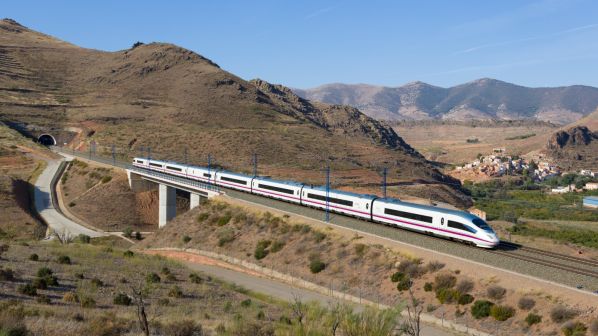Renfe and Rielsfera, along with the Ilsa consortium of Trenitalia and Air Nostrum, were selected by Spanish high-speed infrastructure manager Adif AV to negotiate access agreements to operate services on the Madrid - Barcelona - French border (Corridor 1); Madrid - Valencia/Alicante (Corridor 2), and Madrid - Seville/Málaga (Corridor 3) in November 2019.
Renfe will operate services under the new agreement from the start of the 2021 timetable on December 13, while Rielsfera is due to begin operation in spring 2021. Ilsa will begin operating with the introduction of the 2022 timetable on December 12 2021. Services operated under public service obligation contracts (PSOs) are due to be liberalised from December 2023.
The deadline to submit the requests was July 3, after the period was extended due to the Covid-19 pandemic.
The three operators signed framework agreements with Adif AV in May, outlining the general aspects of operation.
On each corridor, Adif has offered three packages of services. Package A is the largest accounting for 70% of services and has been awarded to Renfe. Package B representing 20% of services has gone to Ilsa, and Package C accounting for the remaining 10% has been awarded to Rielsfera.
On Corridor 1, package A comprises 48 daily services (three trains per hour per direction); B comprises 16 services (one train per hour per direction), and C comprises five services, (one train every three hours in each direction).
On Corridor 2, package A comprises 32 daily services (two trains per hour per direction); B comprises 16 services (one train per hour per direction); and C comprises four services (four trains a day in each direction).
On Corridor 3, package A comprises 48 daily services (three trains per hour per direction); B comprises 16 services (one train per hour per direction); and package C comprises four services (four trains a day in each direction).
All three packages will be for 10 years, after the National Markets and Competition Commission (CNMC) reversed an earlier decision to limit Renfe’s agreement to five years.
The operators have now submitted their train path requests under the agreements, which Adif AV will now analyse for feasibility and compatibility with the other operators’ requests. If there are conflicts, Adif AV will work with the operators to adjust them. If this is not possible, priority is given to certain routes.
A provisional timetable will be released to the operators on August 21, with the final allocation of capacity released on October 13. The requests for capacity will be kept confidential until the timetable is announced.
Adif AV will publish the remaining capacity within three months of the signing of the framework agreements, with operators interested in running open-access services invited to apply for any excess routes.
Adif AV says the liberalisation of passenger services represents an opportunity to promote sustainable transport, at a time when the carbon emissions must be reduced. The infrastructure manager says the Covid-19 outbreak has also shown industrialised countries that a cleaner environment and healthier population cope better with diseases and pandemics.
“It is expected that the railway will become the most environmentally friendly means of transport, playing an especially prominent role in short-distance mobility,” Adif AV says. “In this sense, the railway is in a position to offer the best response to future mobility needs, both for freight and passengers.”

